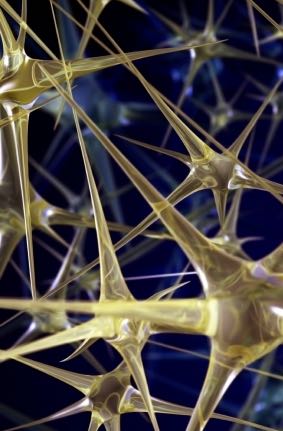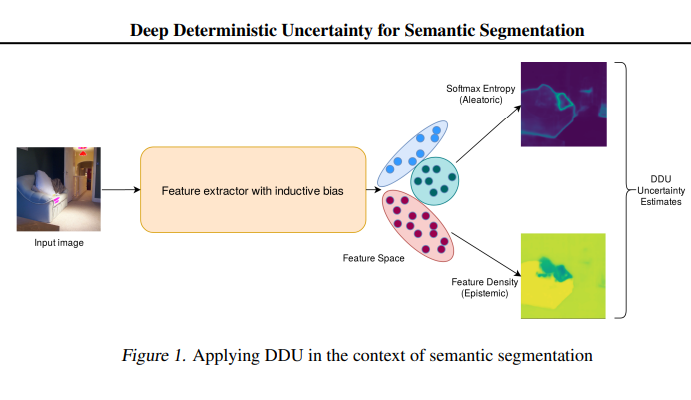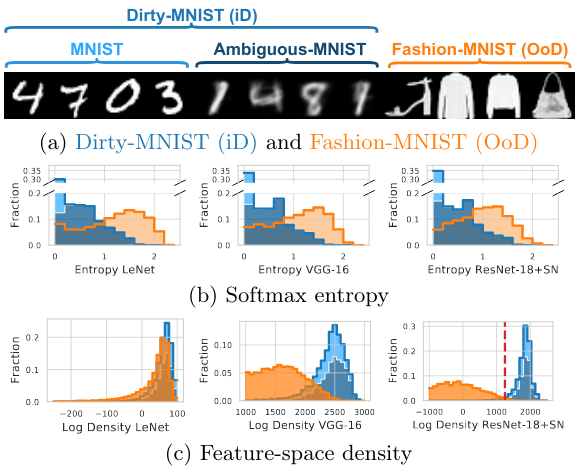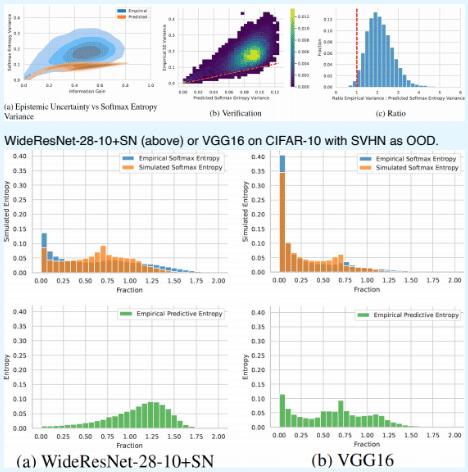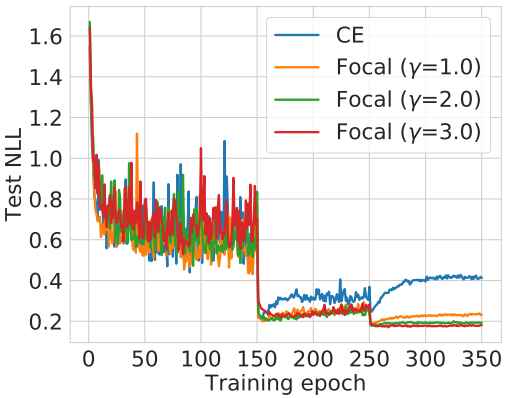Back to all members...
Jishnu Mukhoti
Associate Member (PhD) (2019—2024)

Jishnu was a DPhil (PhD) student at the University of Oxford working with Philip Torr and Yarin Gal. He is interested in ways by which approximate Bayesian inference can be performed in a scalable, light-weight manner in deep neural networks. He previously worked at Amazon as a Software Developer and also did his MSc in Computer Science at Oxford.
Publications while at OATML • News items mentioning Jishnu Mukhoti • Reproducibility and Code • Blog Posts
Publications while at OATML:
Fine-tuning can cripple your foundation model; preserving features may be the solution
Pre-trained foundation models, due to their enormous capacity and exposure to vast amounts of data during pre-training, are known to have learned plenty of real-world concepts. An important step in making these pre-trained models extremely effective on downstream tasks is to fine-tune them on related datasets. While various fine-tuning methods have been devised and have been shown to be highly effective, we observe that a fine-tuned model's ability to recognize concepts on tasks different from the downstream one is reduced significantly compared to its pre-trained counterpart. This is an undesirable effect of fine-tuning as a substantial amount of resources was used to learn these pre-trained concepts in the first place. We call this phenomenon "concept forgetting" and via experiments show that most end-to-end fine-tuning approaches suffer heavily from this side effect. To this end, we propose a simple fix to this problem by designing a new fine-tuning method called LDIFS (short fo... [full abstract]
Jishnu Mukhoti, Yarin Gal, Philip H.S. Torr, Puneet K. Dokania
Transactions on Machine Learning Research (TMLR)
[paper]
Deep Deterministic Uncertainty for Semantic Segmentation
We extend Deep Deterministic Uncertainty (DDU), a method for uncertainty estimation using feature space densities, to semantic segmentation. DDU enables quantifying and disentangling epistemic and aleatoric uncertainty in a single forward pass through the model. We study the similarity of feature representations of pixels at different locations for the same class and conclude that it is feasible to apply DDU location independently, which leads to a significant reduction in memory consumption compared to pixel dependent DDU. Using the DeepLab-v3+ architecture on Pascal VOC 2012, we show that DDU improves upon MC Dropout and Deep Ensembles while being significantly faster to compute.
Jishnu Mukhoti, jv, Philip HS Torr, Yarin Gal
arXiv (2021)
[Paper]
Deterministic Neural Networks with Inductive Biases Capture Epistemic and Aleatoric Uncertainty
While Deep Ensembles are the state-of-the art for uncertainty prediction, standard softmax neural nets suffer from feature collapse and cannot disentangle aleatoric and epistemic uncertainty. We show that a single softmax neural net with minimal changes can beat epistemic uncertainty predictions of Deep Ensembles and other complex single-forward-pass uncertainty approaches (DUQ and SNGP) while also disentangling uncertainties. Our *Deep Deterministic Uncertainty (DDU)* is based on three insights: i) predictive entropy confounds aleatoric and epistemic uncertainty, and softmax entropy is inconsistent for OoD points; ii) with appropriate inductive biases, i.e. residual connections and spectral normalization, feature-space density reliably captures epistemic uncertainty; and, iii) density estimation and classification objectives might have different optima. Thus, DDU disentangles aleatoric uncertainty using softmax entropy and epistemic uncertainty using a separate feature-space de... [full abstract]
Jishnu Mukhoti, Andreas Kirsch, Joost van Amersfoort, Philip H.S. Torr, Yarin Gal
Uncertainty & Robustness in Deep Learning Workshop, ICML, 2021
[Paper] [BibTex] [Poster]
On Pitfalls in OoD Detection: Entropy Considered Harmful
Entropy of a predictive distribution averaged over an ensemble or several posterior weight samples is often used as a metric for Out-of-Distribution (OoD) detection. However, we show that predictive entropy is inappropriate for this task because it mistakes ambiguous in-distribution samples as OoD. This issue remains hidden on curated datasets commonly used for benchmarking. We introduce a new dataset, Dirty-MNIST, with a long tail of ambiguous samples, which exemplifies this problem. Additionally, we look at the entropy of single, deterministic, softmax models and show that it is unreliable *exactly* for OoD samples. In summary, we caution against using predictive or softmax entropy for OoD detection in practice and introduce several methods to evaluate the quantitative difference between several uncertainty metrics.
Andreas Kirsch, Jishnu Mukhoti, Joost van Amersfoort, Philip H.S. Torr, Yarin Gal
Uncertainty & Robustness in Deep Learning Workshop, ICML, 2021
[Paper] [BibTex] [Poster]
Calibrating Deep Neural Networks using Focal Loss
Miscalibration -- a mismatch between a model's confidence and its correctness -- of Deep Neural Networks (DNNs) makes their predictions hard to rely on. Ideally, we want networks to be accurate, calibrated and confident. We show that, as opposed to the standard cross-entropy loss, focal loss (Lin et al., 2017) allows us to learn models that are already very well calibrated. When combined with temperature scaling, whilst preserving accuracy, it yields state-of-the-art calibrated models. We provide a thorough analysis of the factors causing miscalibration, and use the insights we glean from this to justify the empirically excellent performance of focal loss. To facilitate the use of focal loss in practice, we also provide a principled approach to automatically select the hyperparameter involved in the loss function. We perform extensive experiments on a variety of computer vision and NLP datasets, and with a wide variety of network architectures, and show that our approach achieves s... [full abstract]
Jishnu Mukhoti, Viveka Kulharia, Amartya Sanyal, Stuart Golodetz, Philip H.S. Torr, Puneet K. Dokania
NeurIPS, 2020
[Paper]
On using Focal Loss for Neural Network Calibration
Miscalibration -- a mismatch between a model's confidence and its correctness -- of Deep Neural Networks (DNNs) makes their predictions hard to rely on. Ideally, we want networks to be accurate and calibrated. In this work, we study focal loss as an alternative to the conventional cross-entropy loss and show that, focal loss allows us to learn models that are comparitively well calibrated while preserving accuracy. We provide a thorough analysis of the factors causing miscalibration, and use the insights we glean from this to justify the superior performance of focal loss. Finally, we perform extensive experiments on a variety of datasets, and with a wide variety of network architectures, and show that focal loss indeed achieves excellent calibration without compromising on accuracy in almost all cases.
Jishnu Mukhoti, Viveka Kulharia, Amartya Sanyal, Stuart Golodetz, Philip H.S. Torr, Puneet K. Dokania
Uncertainty and Robustness in Deep Learning Workshop, ICML 2020
[Paper]
On the Importance of Strong Baselines in Bayesian Deep Learning
Like all sub-fields of machine learning, Bayesian Deep Learning is driven by empirical validation of its theoretical proposals. Given the many aspects of an experiment, it is always possible that minor or even major experimental flaws can slip by both authors and reviewers. One of the most popular experiments used to evaluate approximate inference techniques is the regression experiment on UCI datasets. However, in this experiment, models which have been trained to convergence have often been compared with baselines trained only for a fixed number of iterations. What we find is that if we take a well-established baseline and evaluate it under the same experimental settings, it shows significant improvements in performance. In fact, it outperforms or performs competitively with numerous to several methods that when they were introduced claimed to be superior to the very same baseline method. Hence, by exposing this flaw in experimental procedure, we highlight the importance of using... [full abstract]
Jishnu Mukhoti, Pontus Stenetorp, Yarin Gal
Workshop on Bayesian Deep Learning, NeurIPS 2018
[Paper] [arXiv] [BibTex]
Evaluating Bayesian Deep Learning Methods for Semantic Segmentation
Deep learning has been revolutionary for computer vision and semantic segmentation in particular, with Bayesian Deep Learning (BDL) used to obtain uncertainty maps from deep models when predicting semantic classes. This information is critical when using semantic segmentation for autonomous driving for example. Standard semantic segmentation systems have well-established evaluation metrics. However, with BDL's rising popularity in computer vision we require new metrics to evaluate whether a BDL method produces better uncertainty estimates than another method. In this work we propose three such metrics to evaluate BDL models designed specifically for the task of semantic segmentation. We modify DeepLab-v3+, one of the state-of-the-art deep neural networks, and create its Bayesian counterpart using MC dropout and Concrete dropout as inference techniques. We then compare and test these two inference techniques on the well-known Cityscapes dataset using our suggested metrics. Our resul... [full abstract]
Jishnu Mukhoti, Yarin Gal
arXiv
[arXiv] [BibTex]
News items mentioning Jishnu Mukhoti:

ICML 2021
17 Jul 2021
Seven papers with OATML members accepted to ICML 2021, together with 14 workshop papers. More information in our blog post.
Blog Posts
21 OATML Conference and Workshop papers at ICML 2021
OATML group members and collaborators are proud to present 21 papers at ICML 2021, including 7 papers at the main conference and 14 papers at various workshops. Group members will also be giving invited talks and participate in panel discussions at the workshops. …
Full post...Angelos Filos, Clare Lyle, Jannik Kossen, Sebastian Farquhar, Tom Rainforth, Andrew Jesson, Sören Mindermann, Tim G. J. Rudner, Oscar Key, Binxin (Robin) Ru, Pascal Notin, Panagiotis Tigas, Andreas Kirsch, Jishnu Mukhoti, Joost van Amersfoort, Lisa Schut, Muhammed Razzak, Aidan Gomez, Jan Brauner, Yarin Gal, 17 Jul 2021
22 OATML Conference and Workshop papers at NeurIPS 2020
OATML group members and collaborators are proud to be presenting 22 papers at NeurIPS 2020. Group members are also co-organising various events around NeurIPS, including workshops, the NeurIPS Meet-Up on Bayesian Deep Learning and socials. …
Full post...Muhammed Razzak, Panagiotis Tigas, Angelos Filos, Atılım Güneş Baydin, Andrew Jesson, Andreas Kirsch, Clare Lyle, Freddie Kalaitzis, Jan Brauner, Jishnu Mukhoti, Lewis Smith, Lisa Schut, Mizu Nishikawa-Toomey, Oscar Key, Binxin (Robin) Ru, Sebastian Farquhar, Sören Mindermann, Tim G. J. Rudner, Yarin Gal, 04 Dec 2020
13 OATML Conference and Workshop papers at ICML 2020
We are glad to share the following 13 papers by OATML authors and collaborators to be presented at this ICML conference and workshops …
Full post...Angelos Filos, Sebastian Farquhar, Tim G. J. Rudner, Lewis Smith, Lisa Schut, Tom Rainforth, Panagiotis Tigas, Pascal Notin, Andreas Kirsch, Clare Lyle, Joost van Amersfoort, Jishnu Mukhoti, Yarin Gal, 10 Jul 2020

